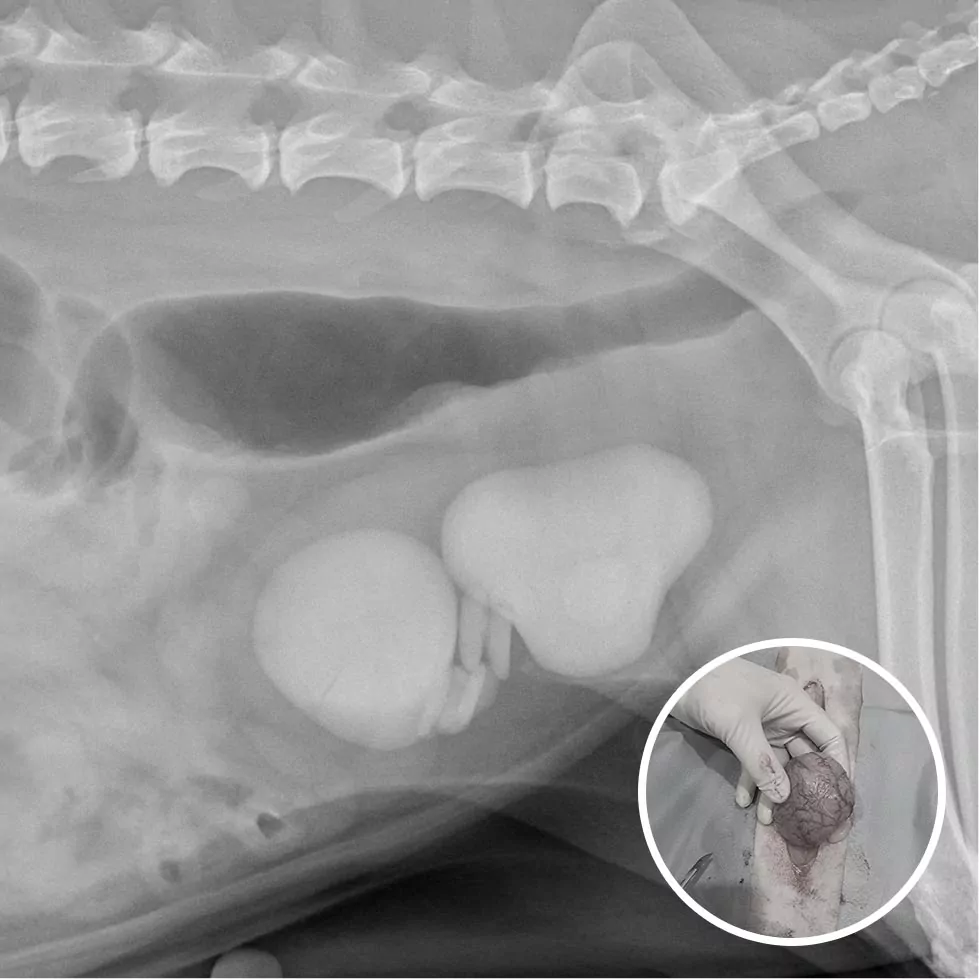Bladder Stone Removal
What are bladder stones?
“Stones” can often be diagnosed by palpating the bladder across the abdomen, as they can be easily felt in many cases. In cases where bladder calculi are suspected (due to recurrent bladder infections and/or frequent urination that doesn’t respond to medication) but cannot be palpated, an x-ray will be able to diagnose them easily. X-rays can generally be performed without the need to first anaesthetise your pet.
Whilst bladder stones can sometimes be medically treated via a special diet, the more common (and faster) form of treatment is to remove them via surgery. These procedures are generally quite quick, often taking only 30 to 45 minutes, and patients are usually able to go home the same day.
Procedure cost
Bladder stone removal surgery for dogs usually costs between $1,700 and $2,400, plus any charges related to the diagnosis (if this has not already been performed elsewhere).
Optional pre-anaesthetic blood test available for all surgeries (additional cost)
Recovery and aftercare



Expect the same sort of aftercare that you would for most surgeries – keep your dog quiet for 5 to 7 days after their bladder stone surgery. If diet is suspected to be the cause of the “stones”, also expect a change in the type of food you feed your pet to prevent the problem from reoccurring.
.webp)
